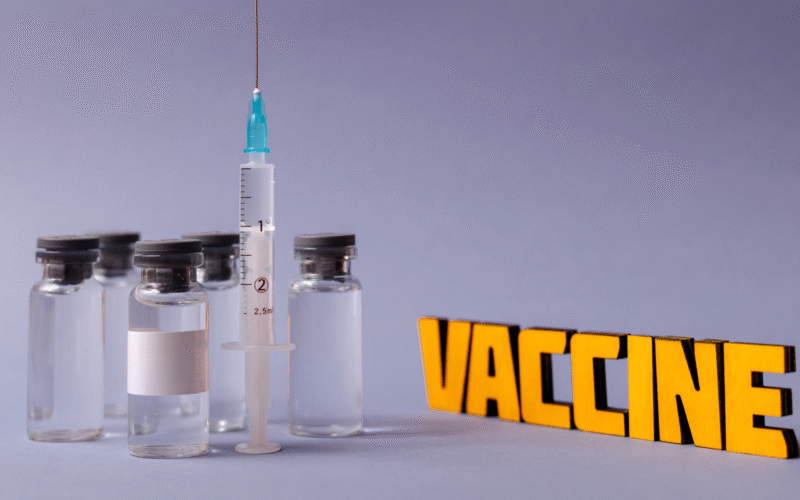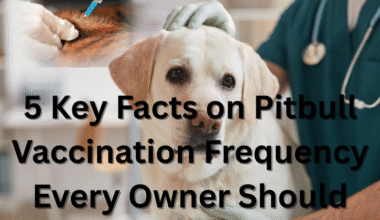Did you know that nearly one in four dogs who miss their vaccinations are at risk of preventable diseases like parvovirus or distemper? For pitbulls—dogs often misunderstood and unfairly judged—staying healthy isn’t just about wagging tails and playful zoomies; it’s also about breaking stereotypes through responsible care.
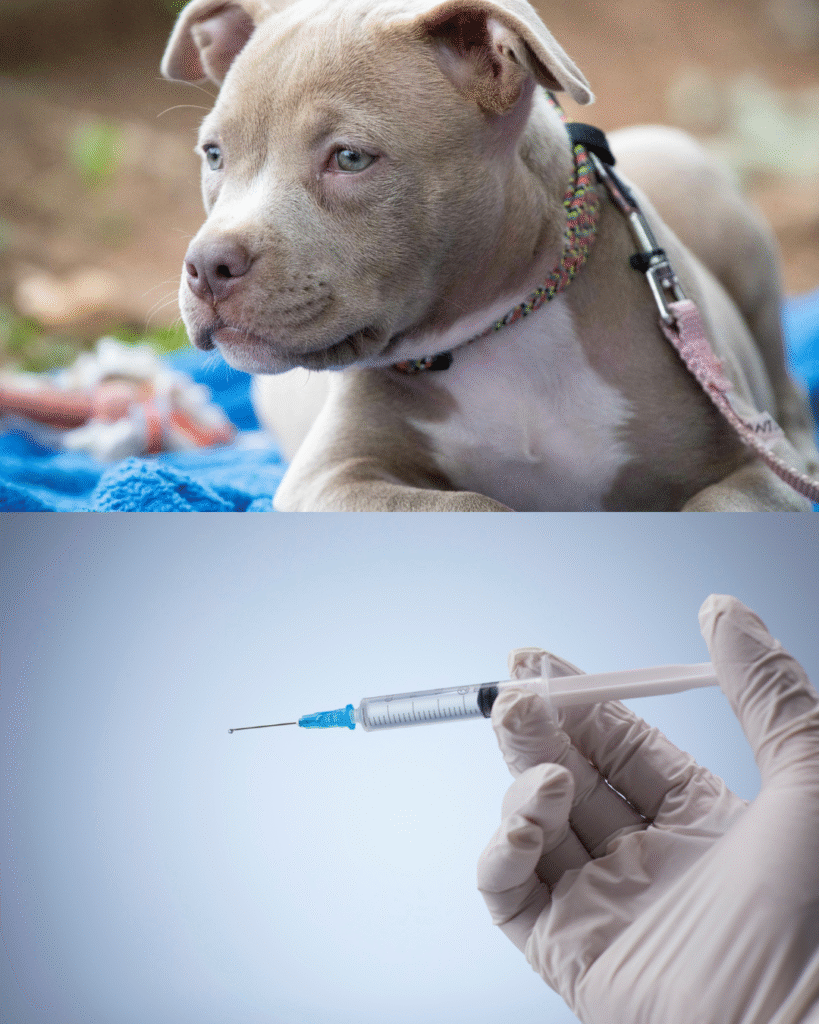
Vaccinations are one of the simplest, most powerful ways to protect your Pitbull’s health, keep your family safe, and show the world that Pitbull owners are committed, loving, and responsible. In this post, we’ll explore 7 essential tips that every Pitbull parent and advocate should know—practical advice you can use to safeguard your pup and inspire your community.
Tip 1: Start Early with Puppy Vaccinations
The foundation of a healthy, happy pitbull begins in puppyhood. Pitbull vaccination should start as early as 6–8 weeks, when your pup’s natural immunity from the mother begins to fade. At this stage, puppies are especially vulnerable to dangerous illnesses like parvovirus, distemper, and adenovirus—diseases that can spread quickly and even be fatal if left unprotected.
Starting vaccinations on time builds your pitbull’s immune defense before they’re exposed to other dogs, public spaces, or even common household germs. Missing this crucial window increases the risk of costly vet visits, long recovery times, and in worst cases, heartbreak for both owner and pup.
For animal advocates, early pitbull vaccination is also about responsibility. Many pitbulls end up in shelters due to preventable health issues or neglect. By vaccinating your puppy on schedule, you’re not only protecting your dog—you’re helping reduce abandonment rates and changing the narrative around pitbull care. Responsible pitbull parents set the example that these loyal companions deserve love, protection, and proper medical attention from the very start.
Next, let’s look at how keeping a consistent schedule ensures lifelong protection and peace of mind.
Tip 2: Keep a Consistent Vaccination Schedule
One of the most important steps in protecting your pitbull’s health is maintaining a consistent schedule for vaccinations. While starting early is crucial, following up with boosters at the right time ensures your dog remains protected throughout every stage of life. Skipping or delaying a dose can leave your pitbull vulnerable to dangerous illnesses such as rabies, distemper, or parvovirus.

Here’s a simple timeline most veterinarians recommend:
- 6–8 weeks: First round of core vaccinations
- 10–12 weeks: Second round of boosters
- 14–16 weeks: Final puppy booster shots
- 12 months: First annual booster
- Every 1–3 years: Ongoing boosters as advised by your vet
Keeping track of these vaccinations is not just about health—it’s about advocacy and responsible pet ownership. Consistency shows that pitbull owners value their pets’ well-being and are committed to reducing the risks of disease in their homes and communities. For animal advocates, sharing this message helps fight neglect and highlights the importance of proper care for all breeds.
Up next, we’ll explore the core vaccines every pitbull needs and why they matter for long-term health.
Tip 3: Know the Core Vaccines Every Pitbull Needs
Not all vaccinations are optional—some are considered “core vaccines” because they protect pitbulls from life-threatening diseases. Understanding these essentials is key to building a reliable pitbull vaccination guide that every responsible owner can follow.
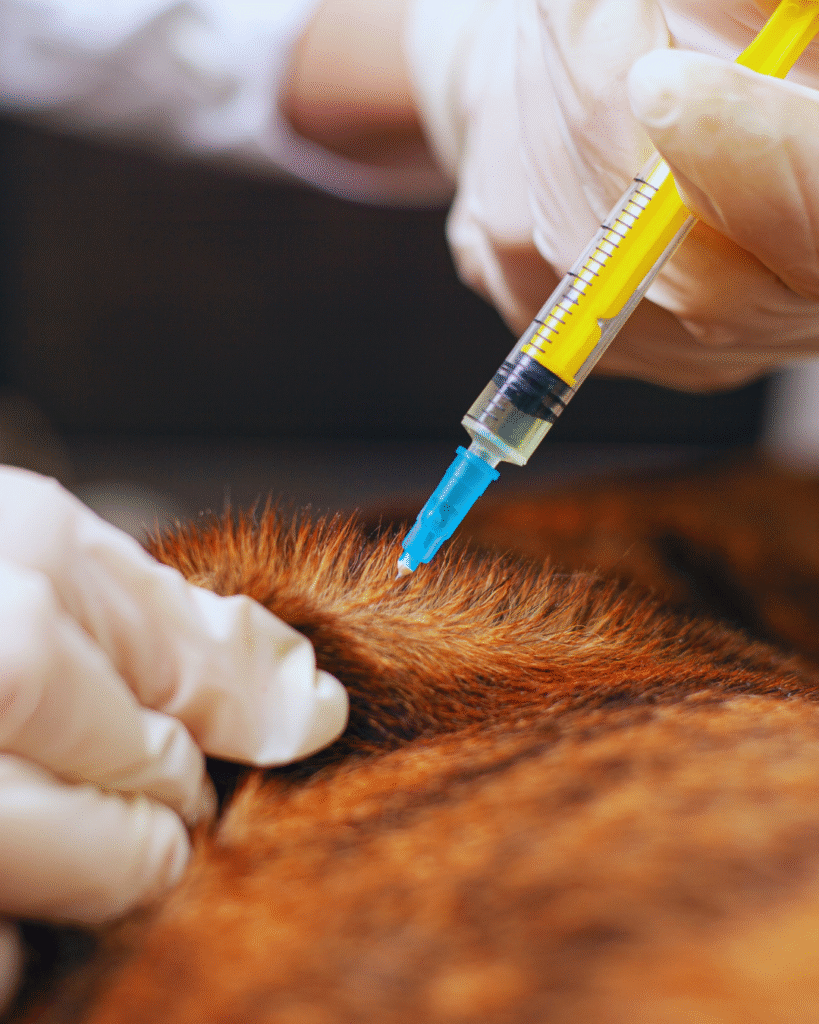
Here are the four core vaccinations your pitbull should never miss:
- Rabies: A fatal virus that affects both dogs and humans. Most states and countries legally require rabies shots for all pets.
- Parvovirus: A highly contagious disease that attacks the digestive system, causing severe vomiting, diarrhea, and often death if untreated.
- Distemper: A serious viral illness that affects the respiratory, digestive, and nervous systems. It spreads easily among unvaccinated dogs.
- Adenovirus (Canine Hepatitis): This affects the liver, kidneys, and eyes, leading to long-term complications if not prevented.
By staying up to date with these vaccinations, pitbull owners protect not only their dogs but also their families and communities. For advocates, stressing the importance of core vaccines helps promote responsible ownership and dismantles the unfair stigma pitbulls face. A healthy pitbull is the best example of the love and loyalty this breed represents.
Next, let’s look at non-core vaccines and how they can provide extra protection depending on your pitbull’s lifestyle.
Tip 4: Don’t Skip Non-Core Vaccines
While core vaccinations are essential for every pitbull, non-core vaccines can provide additional protection depending on your dog’s lifestyle and environment. These vaccines are not always mandatory, but they play a critical role in keeping your pitbull safe in social settings such as dog parks, boarding facilities, or during outdoor adventures.
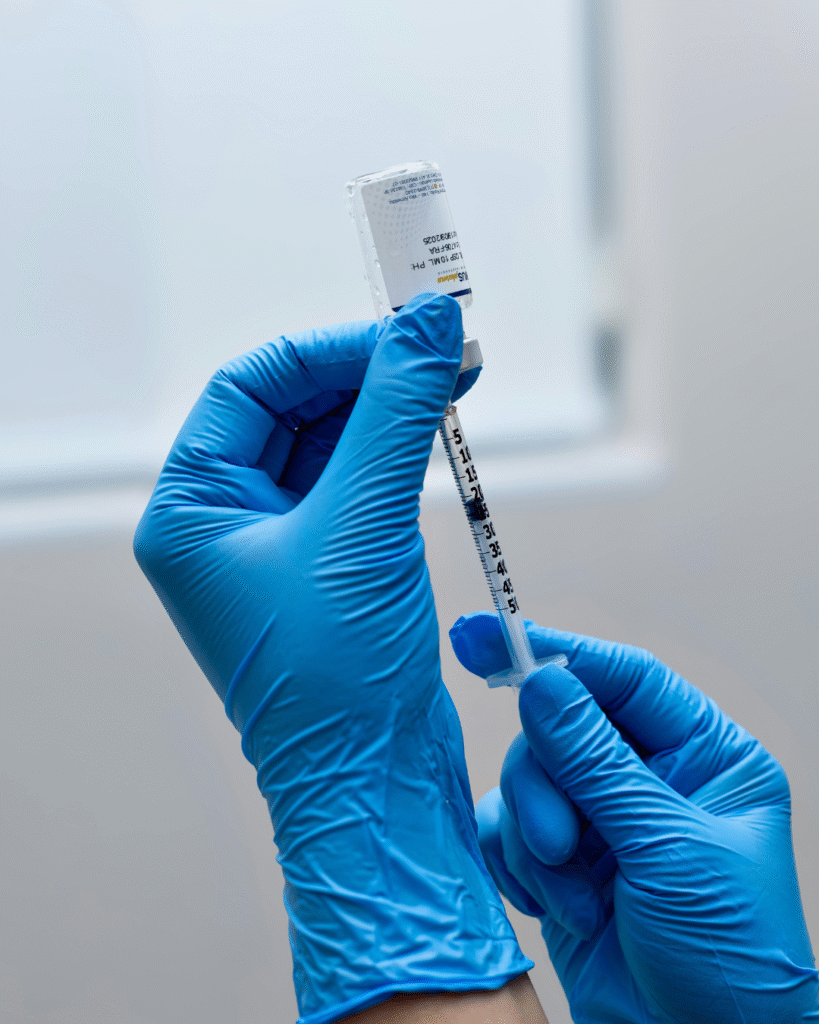
Here are some key non-core vaccinations to consider:
- Bordetella (Kennel Cough): Protects against a contagious respiratory disease common in areas where dogs gather, like grooming centers or shelters.
- Lyme Disease: Recommended if your pitbull spends time in wooded or grassy regions where ticks are common. This disease can cause joint pain, fever, and long-term kidney issues.
- Leptospirosis: A bacterial infection spread through contaminated water or soil. It can be transmitted to humans, making this vaccine important for both pet and public health.
Choosing these vaccinations shows true responsibility as a pitbull parent and advocate. By preventing the spread of infectious diseases, you’re not only protecting your own dog but also ensuring safer play environments for other pets in your community. Healthy, vaccinated pitbulls help challenge stereotypes and promote a culture of responsible ownership.
Next, let’s talk about the importance of tracking and storing vaccination records to stay organized and prepared.
Tip 5: Track and Store Vaccination Records
Staying on top of your pitbull’s vaccinations doesn’t stop at the vet’s office—it also means keeping detailed records. Organized documentation ensures you never miss a booster, can provide proof of health when needed, and makes every vet visit smoother.
Here are some easy ways to manage your pitbull’s vaccination history:
- Keep a folder or binder: Store physical copies of all vet records in one place.
- Use digital apps: Many pet health apps allow you to upload and track upcoming vaccinations with reminders.
- Ask your vet for updates: Request a vaccination card or printout after every appointment.
These records aren’t just about convenience—they matter for real-life situations. Whether you’re traveling, enrolling your pitbull in obedience classes, or visiting a dog park, proof of vaccinations is often required. For advocates, promoting organized record-keeping also emphasizes the importance of responsible ownership and sets a positive example in the community.
By tracking and storing vaccination records, you’re making a strong statement: pitbulls deserve the same quality care as any other breed.
Next, let’s see how pairing vaccinations with regular vet check-ups ensures complete wellness for your pitbull.
Tip 6: Pair Vaccinations with Regular Vet Check-Ups
While vaccinations are a cornerstone of your pitbull’s health, they work best when paired with regular veterinary check-ups. Vaccines protect against specific diseases, but routine exams help detect other health issues early—such as skin conditions, dental problems, or weight concerns—that vaccines alone cannot prevent.
Here’s why combining vet visits with vaccinations is so effective:
- Early detection: Vets can identify issues like allergies, ear infections, or joint pain before they worsen.
- Customized care: Every pitbull is unique. Your vet may adjust vaccine schedules or recommend additional shots based on age, lifestyle, or health history.
- Whole-body wellness: Routine check-ups ensure that diet, exercise, and overall well-being are on track alongside timely vaccinations.
For pitbull advocates, this step reinforces the message that responsible ownership means more than just the basics—it’s about showing consistent care. Healthy pitbulls reflect positively on the breed, helping to reduce stigma and prove that they are loyal, loving companions worthy of the best medical attention.
Up next, we’ll explore how spreading awareness about vaccinations in your community can create a lasting impact for pitbulls everywhere.
Tip 7: Spread Awareness in Your Community
Keeping your pitbull healthy through vaccinations is essential, but the impact goes beyond your own dog. By sharing knowledge and encouraging others to vaccinate their pets, you help create a safer, healthier community for all dogs. Many outbreaks of preventable diseases start because pet owners are unaware of the importance of vaccinations or choose to skip them.

Here are simple ways you can spread awareness:
- Share your pitbull’s journey: Post about your dog’s vaccination visits on social media to normalize responsible care.
- Support local clinics: Volunteer or donate to low-cost vaccination drives that make it easier for families to protect their pets.
- Educate fellow owners: If you see misinformation, gently explain how vaccinations protect not just pitbulls, but also families and other dogs.
For advocates, this is where care becomes a movement. Promoting vaccinations helps fight neglect, reduces shelter overcrowding, and demonstrates that pitbull owners are among the most responsible and loving in the dog community. A vaccinated pitbull isn’t just a healthy pet—it’s a symbol of advocacy and compassion.
Next, we’ll wrap up with a strong conclusion and a call-to-action to inspire every pitbull parent and supporter to take action today.
Conclusion: Healthy Pitbulls, Stronger Communities
From the very first puppy shots to community-wide awareness, vaccinations are more than a medical necessity—they are an act of love and responsibility. For pitbull owners, staying committed to vaccine schedules not only protects your dog from life-threatening illnesses but also shows the world what responsible ownership truly looks like. For advocates, championing the importance of vaccinations helps fight neglect, reduces shelter intake, and builds stronger, healthier communities where pitbulls can thrive.
Your pitbull’s health is in your hands, and every shot counts. When we vaccinate, we protect not just our pets but also our families, neighbors, and other animals around us.
👉 Call-to-Action:
- Book your pitbull’s next vet appointment today to stay on schedule.
- Share this post to spread awareness about the importance of vaccinations.
- Join our community of pitbull advocates and show the world that with the right care, pitbulls are among the most loving and loyal dogs a family could ask for.
Together, we can keep pitbulls healthy, safe, and celebrated for the amazing companions they are.

